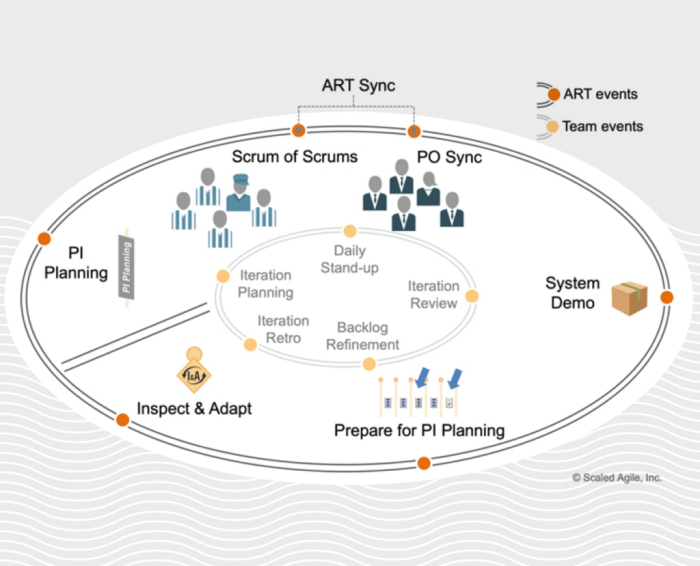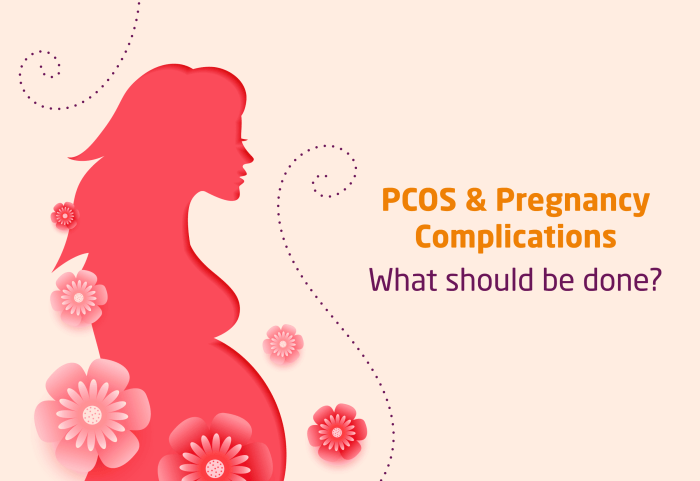Safe OTC pain relievers to take while pregnant are crucial for managing discomfort during pregnancy. Each trimester brings unique aches and pains, from morning sickness to backaches and headaches. Choosing the right, safe over-the-counter medication is vital for both your well-being and the health of your developing baby. This guide will explore the different types of pain relievers, their potential risks and benefits, and how to use them safely.
Understanding the potential risks of using medication not specifically designed for pregnancy is equally important. This comprehensive guide delves into the considerations for specific pain types, highlighting safe options for common pregnancy-related discomforts. We’ll also explore alternatives to medication, empowering you to manage your pain naturally and effectively. We’ll look at the crucial role of consulting your healthcare provider and what to look out for if something isn’t quite right.
Introduction to Pregnancy and Pain Relief
Pregnancy is a transformative journey, bringing with it a unique set of physical changes and potential discomfort. Understanding the common pain experiences throughout the trimesters is crucial for proactively managing them. Navigating these experiences safely and effectively is paramount, particularly when considering the well-being of both the mother and the developing baby. Choosing appropriate pain relief options is vital during this period.Safe and effective pain relief options are essential during pregnancy.
Many over-the-counter medications are not suitable for use during pregnancy, and it is critical to consult a healthcare professional before taking any medication, especially during pregnancy. Using medications not recommended for pregnancy could potentially pose risks to the developing fetus. Knowing the potential risks associated with using inappropriate medications is key to ensuring a healthy pregnancy.
Common Pain Experiences During Pregnancy
Pregnancy brings about various physical changes, often leading to discomfort and pain. Understanding these common experiences is crucial for proactively managing them. These changes impact different body parts and intensities vary greatly.
| Trimester | Common Pain Experiences |
|---|---|
| First Trimester | Morning sickness, fatigue, breast tenderness, backaches, and headaches. |
| Second Trimester | Growing abdomen and back pain, leg cramps, and heartburn. Many women experience a period of relative comfort. |
| Third Trimester | Increased back pain, pelvic pain, swelling in the ankles and feet, shortness of breath, and frequent urination. Braxton Hicks contractions may also be experienced. |
Understanding the common discomforts associated with each trimester allows for proactive management and informed decision-making regarding pain relief.
Potential Risks of Using Non-Recommended Medications
Some medications, even over-the-counter ones, may have adverse effects on the developing fetus. It’s crucial to prioritize the safety of both mother and baby. Medication use during pregnancy should be carefully considered, and consultation with a healthcare professional is always recommended.A significant risk associated with using medications not specifically recommended for pregnancy is the potential for adverse effects on the developing fetus.
This could manifest in various ways, from subtle developmental issues to more severe complications. Examples include birth defects, developmental delays, or even premature birth. These risks vary depending on the specific medication, the trimester in which it’s taken, and the dosage.
Importance of Safe Pain Relief Options
Using safe pain relief options during pregnancy is essential to maintain the well-being of both the mother and the baby. Choosing appropriate remedies minimizes the risks and promotes a comfortable and healthy pregnancy experience.Safe pain relief options are critical during pregnancy. These options prioritize the health and safety of both the mother and the developing baby. These options include non-pharmacological approaches, such as rest, hydration, and gentle exercise, as well as carefully selected over-the-counter medications that have been deemed safe for use during pregnancy by healthcare professionals.
Consulting a healthcare provider is always the first step in determining appropriate pain relief strategies.
Understanding Over-the-Counter Pain Relievers
Navigating pregnancy often involves dealing with various aches and pains. Knowing which over-the-counter (OTC) pain relievers are safe and effective during this time is crucial for maintaining comfort and well-being. This section explores common OTC pain relievers, their potential risks and benefits, mechanisms of action, and their safety profiles during pregnancy.Understanding the different types of OTC pain relievers, their mechanisms of action, and potential side effects empowers expectant mothers to make informed decisions about pain management.
Figuring out safe over-the-counter pain relievers during pregnancy can be tricky. While some are generally okay, others might not be. For instance, if you’re facing heart issues, it’s crucial to understand when prescription drugs are the best option. Seeking expert advice is key, and you can find valuable insights on when to consider prescription medication for heart conditions by checking out this article: ask an expert when should prescription drugs be used to heart disease.
Ultimately, always consult your doctor before taking any medication, especially during pregnancy, to ensure you and your baby are safe.
Careful consideration of these factors is essential to ensure both the mother’s and the developing fetus’s safety.
Common Over-the-Counter Pain Relievers
Various OTC pain relievers are available, each with its own set of characteristics. These include analgesics, which relieve pain, and antipyretics, which reduce fever. Understanding the distinctions between these types aids in selecting the most suitable option for a specific situation.
- Nonsteroidal anti-inflammatory drugs (NSAIDs): These medications, such as ibuprofen and naproxen, reduce inflammation and pain. They are commonly used for headaches, menstrual cramps, and muscle aches.
- Acetaminophen (Paracetamol): This medication primarily reduces pain and fever. It is often considered a safer alternative to NSAIDs during pregnancy, although further research is always ongoing.
Mechanisms of Action of OTC Pain Relievers
Different pain relievers work through distinct mechanisms. Understanding these mechanisms helps explain their varied effects and potential risks.
- NSAIDs: These medications work by inhibiting cyclooxygenase (COX) enzymes. COX enzymes play a crucial role in producing prostaglandins, which are involved in inflammation, pain, and fever. By blocking COX, NSAIDs reduce the production of these molecules, thereby decreasing inflammation and pain.
- Acetaminophen: The exact mechanism of acetaminophen’s pain-relieving and fever-reducing effects is not fully understood. However, it’s believed to act on the central nervous system, influencing the perception of pain and the regulation of body temperature.
Comparison of OTC Pain Relievers During Pregnancy
This table provides a comparative overview of common OTC pain relievers, highlighting their active ingredients, potential side effects, and pregnancy safety classifications. Consult with a healthcare provider for personalized advice.
| Pain Reliever | Active Ingredient | Potential Side Effects | Pregnancy Safety Classification |
|---|---|---|---|
| Ibuprofen (Advil, Motrin) | Ibuprofen | Gastrointestinal upset, kidney problems (in high doses or with pre-existing conditions), risk of premature closure of the ductus arteriosus in the fetus (especially in late pregnancy) | Generally avoided in the first trimester; use with caution and under medical supervision in the later stages of pregnancy. |
| Naproxen (Aleve) | Naproxen | Similar to ibuprofen, with a potential for increased risk of gastrointestinal upset. | Generally avoided in the first trimester; use with caution and under medical supervision in the later stages of pregnancy. |
| Acetaminophen (Tylenol) | Acetaminophen | Liver damage in high doses, although rare with typical use. | Generally considered safe during pregnancy, but always use as directed and consult a healthcare professional. |
Safe OTC Pain Relievers During Pregnancy
Managing pain during pregnancy is crucial for comfort and well-being. While many pain relievers are available over-the-counter, it’s essential to choose options that are considered safe for use during pregnancy. Consult your healthcare provider before taking any medication during pregnancy, especially if you have pre-existing medical conditions or are taking other medications.
Safe Over-the-Counter Pain Relievers, Safe otc pain relievers to take while pregnant
Several over-the-counter pain relievers are generally considered safe for pregnant women when used as directed. However, it’s crucial to remember that “safe” doesn’t mean “risk-free.” Always prioritize consulting your doctor or a qualified healthcare professional for personalized advice before using any medication during pregnancy.
- Acetaminophen (Paracetamol): This is often the recommended first-line treatment for mild to moderate pain during pregnancy. It’s generally considered safe for use during all trimesters when taken as directed. Specific brand names include Tylenol, Panadol, and others.
- Ibuprofen (Advil, Motrin): Ibuprofen is another common pain reliever. While generally considered safe for use during the second and third trimesters, it’s not recommended during the first trimester. Always discuss with your healthcare provider before use. Brand names include Advil, Motrin, and others.
- Salicylates (Aspirin): Salicylates, particularly aspirin, are not generally recommended during pregnancy. They can have potential risks to the developing fetus and are often contraindicated. Consult your doctor before using any medications containing salicylates.
Recommended Dosages and Administration Guidelines
Following the recommended dosages and administration guidelines is critical to ensuring safety and effectiveness. Never exceed the recommended dosage or take the medication more frequently than prescribed. Always carefully read and follow the instructions on the medication label. Always check with your doctor for personalized guidance.
Potential Side Effects and When to Consult
Like any medication, over-the-counter pain relievers can potentially cause side effects. These side effects can vary from person to person and may include mild discomfort, nausea, or allergic reactions. If you experience any concerning symptoms or adverse reactions, immediately contact your healthcare provider.
Importance of Following Dosage and Frequency
Strict adherence to the recommended dosage and frequency is essential for both safety and effectiveness. Taking too much or too frequently can lead to adverse effects. Incorrect dosage and administration may affect the baby and the mother. Always follow the instructions provided by your doctor or on the medication label.
Medication Summary Table
| Medication Name | Active Ingredient | Dosage | Potential Side Effects |
|---|---|---|---|
| Tylenol | Acetaminophen | Follow label instructions, typically 325-1000 mg every 4-6 hours as needed. | Rarely, liver problems; allergic reactions. |
| Advil | Ibuprofen | Follow label instructions, typically 200-400 mg every 4-6 hours as needed. | Gastrointestinal upset, allergic reactions, risk of bleeding (rare). |
| Aspirin | Salicylates | Not generally recommended during pregnancy. | Potential risks to the developing fetus; gastrointestinal issues. |
Considerations for Specific Pain Types

Navigating pregnancy often involves a spectrum of physical discomforts. Understanding which over-the-counter (OTC) pain relievers are safe and appropriate for specific types of pain during pregnancy is crucial. This section delves into common pregnancy-related aches and pains, exploring safe OTC options and when professional medical advice is essential.Knowing the cause of the pain and whether an OTC pain reliever is suitable is key to managing discomfort effectively and safely.
Often, simple remedies can provide relief, but some situations require a doctor’s intervention.
Safe OTC Options for Common Pregnancy-Related Pains
Many common pregnancy discomforts can be managed with appropriate OTC pain relievers. However, it’s essential to consult a healthcare provider before taking any medication during pregnancy. Always follow the recommended dosage instructions carefully.
- Headaches: While many headaches can be effectively managed with OTC pain relievers like ibuprofen or acetaminophen, it’s vital to understand the underlying cause. Tension headaches are often common during pregnancy, and these can usually be relieved with simple remedies. However, severe or persistent headaches may indicate a more serious condition and warrant a visit to the doctor.
Always prioritize consulting a doctor before taking any medications, especially during pregnancy.
- Back Pain: Back pain is a prevalent concern during pregnancy, often due to hormonal changes, weight gain, and shifting posture. Over-the-counter pain relievers like ibuprofen can help manage mild to moderate back pain. However, certain back pain issues might necessitate professional evaluation. Proper posture, exercises recommended by a physical therapist, and supportive devices can also be helpful.
- Muscle Aches: Muscle aches are common during pregnancy due to increased physical strain and hormonal fluctuations. Ibuprofen or acetaminophen can help alleviate these aches. It’s important to distinguish between typical pregnancy-related muscle soreness and potential underlying conditions, which might require medical attention.
Determining the Appropriateness of OTC Pain Relief
Proper assessment of the pain is crucial before resorting to OTC remedies. Understanding the source of discomfort is vital for selecting the right approach. For instance, a simple headache can often be treated with over-the-counter pain relievers. However, a persistent or severe headache could indicate a more serious condition, necessitating medical attention.
Potential Interactions with Other Medications or Supplements
Some OTC pain relievers may interact with other medications or supplements you might be taking. Always inform your healthcare provider about all medications, including OTC drugs and supplements, before starting any new treatment during pregnancy.
When Professional Medical Advice Is Necessary
Certain situations necessitate immediate medical attention, regardless of the pain reliever used. These include:
- Severe or persistent pain
- Pain accompanied by fever or chills
- Pain that worsens over time
- Pain associated with vaginal bleeding or spotting
- Pain in the abdomen or pelvic area
- Any unusual or concerning symptoms
In such cases, it is crucial to seek immediate medical advice.
Table of Pregnancy-Related Pains and Appropriate OTC Relief Options
| Pain Type | Potential Cause | Appropriate OTC Relief (Examples) | Important Considerations |
|---|---|---|---|
| Headache | Tension, dehydration, stress | Acetaminophen, ibuprofen (consult doctor) | Severe or persistent headaches warrant medical attention. |
| Back Pain | Hormonal changes, weight gain, posture | Ibuprofen, acetaminophen (consult doctor) | Consult a doctor if pain is severe, persistent, or accompanied by other symptoms. |
| Muscle Aches | Increased physical activity, hormonal fluctuations | Acetaminophen, ibuprofen (consult doctor) | Discomfort may be temporary. If severe or persistent, seek medical advice. |
Importance of Consulting a Healthcare Professional: Safe Otc Pain Relievers To Take While Pregnant
Pregnancy is a time of significant physical and hormonal changes, making pain management unique. While over-the-counter (OTC) medications can sometimes provide relief, it’s crucial to remember that their safety and efficacy during pregnancy can vary. A healthcare professional plays a vital role in guiding you through the best pain relief strategies, tailored to your individual needs and circumstances.Seeking guidance from a medical professional is essential for a safe and healthy pregnancy.
Finding safe over-the-counter pain relievers during pregnancy can be tricky. While some are generally considered safe, it’s always best to check with your doctor before taking anything new. For example, understanding the details of low dose statins, as outlined in this helpful resource about low dose statins definition examples uses , might help you grasp the importance of careful medication management during pregnancy.
Ultimately, prioritizing your health and the health of your developing baby by discussing safe pain relief options with your healthcare provider is key.
Your doctor or midwife has the expertise to assess your specific situation, consider potential risks, and recommend the most appropriate pain relief options. This personalized approach ensures that you receive the right care, mitigating any potential negative effects on your developing baby.
Crucial Role of Healthcare Providers
Healthcare providers, such as doctors and midwives, possess specialized knowledge about pregnancy-related pain. They can accurately diagnose the cause of your discomfort, differentiating between common pregnancy symptoms and potential underlying medical issues. This expert evaluation is crucial for determining the safest and most effective pain management plan. They can also assess the severity of pain and its impact on your overall well-being and the well-being of your baby.
Importance of Discussing Pain Relief Options
Open communication with your healthcare provider is paramount when discussing pain relief. Sharing your pain experiences, including its location, intensity, and duration, allows your provider to make an informed decision. Thorough discussions about potential pain relief options, considering both OTC medications and other approaches, are necessary to ensure optimal care. This includes exploring the benefits and potential risks of each option.
Informing Healthcare Providers About Existing Conditions
Accurate information about your medical history, including any existing medical conditions or allergies, is critical for safe pain management during pregnancy. This information helps your healthcare provider tailor the treatment plan to avoid interactions or complications that could affect you or your baby. This includes past experiences with medications, allergies, or sensitivities.
Seeking Professional Advice Before Using New Medications
Before introducing any new medication during pregnancy, always consult your healthcare provider. Even seemingly harmless OTC medications can have unforeseen effects on a developing fetus. The potential risks and benefits of a particular medication must be carefully evaluated in the context of your unique circumstances. This cautious approach is essential for safeguarding the well-being of both you and your baby.
Table of Situations Requiring Professional Medical Advice
| Situation | Explanation |
|---|---|
| Persistent or severe pain | Unrelenting pain, especially if accompanied by other symptoms, necessitates immediate medical attention. |
| Pain that changes in character or intensity | Any alteration in pain characteristics warrants consultation with a healthcare provider to rule out underlying conditions. |
| Pain associated with other symptoms (e.g., fever, nausea, bleeding) | Pain accompanied by other symptoms may indicate a more serious issue requiring professional evaluation. |
| Pain localized to the abdomen or pelvic area | Pain in these areas during pregnancy could signal complications such as uterine contractions or ectopic pregnancy. |
| Experiencing pain after a fall or injury | Physical trauma warrants a thorough assessment by a healthcare provider to rule out potential injuries. |
| Unfamiliar or unusual pain | Any pain that you are unsure about or find unexpected should be discussed with your healthcare provider. |
Potential Risks and Side Effects
Taking over-the-counter (OTC) pain relievers during pregnancy requires careful consideration. While these medications can offer temporary relief, they might pose risks to the developing fetus. Understanding these potential risks is crucial for making informed decisions about pain management during pregnancy.Using any medication during pregnancy involves potential risks, and OTC pain relievers are no exception. The developing fetus is highly susceptible to the effects of various substances, and the long-term consequences of exposure to medications are still being studied.
It’s vital to discuss any pain relief needs with your healthcare provider to weigh the benefits against the potential risks.
Potential Risks to the Developing Fetus
Understanding the potential risks to the developing fetus is paramount. The developing baby is extremely vulnerable to substances passing through the placenta. While many OTC pain relievers are deemed safe for occasional use, chronic or excessive use could lead to unforeseen complications. For instance, some studies suggest a potential link between certain pain relievers and issues like birth defects.
However, these findings are complex and require further research.
Importance of Reporting Unusual Symptoms
It’s essential to report any unusual symptoms to your healthcare provider immediately. This includes any new or worsening pain, changes in your baby’s movements, or any other concerns. Open communication with your doctor is key to monitoring your well-being and the health of your developing baby. Early intervention and careful monitoring are critical in managing any potential complications.
Strategies for Managing Pain Without Medication
There are several strategies for managing pain without resorting to medication. These include applying heat or cold packs, gentle exercise, and relaxation techniques. Maintaining a healthy lifestyle with a balanced diet and adequate rest is also crucial in promoting overall well-being. Engaging in relaxation techniques like deep breathing exercises or meditation can also effectively reduce pain perception.
Finding safe over-the-counter pain relievers during pregnancy can be tricky. While some options are generally considered safe, it’s always best to consult your doctor before taking anything new. Knowing the differences between conditions like myasthenia gravis vs ALS can also be important for understanding how certain medications might interact with your body. For more information on these neurological conditions, check out this helpful resource on myasthenia gravis vs ALS: myasthenia gravis vs als.
Ultimately, prioritizing your health and your baby’s health during pregnancy is key, and that includes being cautious with any medications.
Potential Side Effects of Different OTC Pain Relievers
| OTC Pain Reliever | Potential Side Effects | Associated Risks |
|---|---|---|
| Acetaminophen (Tylenol) | Liver damage (with excessive use), allergic reactions, skin rash | Rare but serious risks with prolonged use or high doses. Consult with your healthcare provider for guidance. |
| Ibuprofen (Advil, Motrin) | Gastrointestinal issues (stomach upset, ulcers), allergic reactions, kidney problems | Potentially harmful to the kidneys if used in high doses or with other medications. Avoid use during the third trimester. |
| Naproxen (Aleve) | Gastrointestinal issues (stomach upset, ulcers), kidney problems, allergic reactions | Similar to ibuprofen, high doses or prolonged use may pose a risk. Consult with your healthcare provider. |
Note: This table is for informational purposes only and should not be considered medical advice. Always consult your healthcare provider before using any OTC pain reliever during pregnancy. The risks associated with each medication may vary depending on individual circumstances.
Alternatives to OTC Pain Relievers

Pregnancy brings a unique set of challenges, and managing pain safely is crucial. While over-the-counter (OTC) pain relievers can be helpful, exploring alternative methods can provide effective and often gentler ways to alleviate discomfort without the potential risks associated with medication. Understanding these alternatives is essential for a comfortable and healthy pregnancy.Effective pain relief during pregnancy doesn’t always necessitate medication.
Many safe and natural approaches can effectively manage discomfort, promoting overall well-being. These methods are often well-tolerated and offer a holistic approach to managing pain.
Rest and Relaxation
Adequate rest is fundamental to managing pain during pregnancy. Rest allows the body to repair and recover from daily stressors, which can contribute to pain. This includes getting enough sleep, taking breaks throughout the day, and avoiding strenuous activities. Prioritizing rest is particularly important when experiencing back pain, muscle aches, or general discomfort. Creating a relaxing environment, incorporating relaxation techniques such as deep breathing or meditation, and ensuring proper sleep posture can significantly reduce pain.
Applying Heat and Ice
Applying heat or ice packs can provide significant pain relief for various discomforts. Heat promotes blood flow, which can soothe muscle aches and pains, while ice helps reduce inflammation and swelling, often beneficial for headaches or joint pain. A hot water bottle or heating pad can offer soothing warmth, while a cold pack or ice wrapped in a cloth can help reduce inflammation and swelling.
It’s crucial to apply these therapies for appropriate durations to avoid burns or skin irritation.
Gentle Exercise
Maintaining a gentle exercise routine throughout pregnancy can help alleviate various aches and pains, particularly back pain. Exercises like prenatal yoga, swimming, or walking can improve flexibility, reduce muscle tension, and increase circulation, which contributes to overall comfort. Consulting with a healthcare professional about appropriate exercise routines is crucial to ensure safety and effectiveness. Light exercises are generally recommended to avoid strenuous movements that might strain the body.
Healthy Diet and Hydration
A well-balanced diet rich in nutrients and adequate hydration play a critical role in overall health and pain management during pregnancy. A diet lacking essential nutrients can contribute to various discomforts, including muscle cramps and headaches. Consuming foods rich in calcium, magnesium, and vitamin D can help support bone health and reduce muscle cramps. Staying hydrated is equally important; dehydration can exacerbate existing pain and lead to new discomfort.
Maintaining proper hydration levels can significantly improve overall well-being and reduce pain.
Comparison of OTC Pain Relievers and Alternative Methods
| Feature | OTC Pain Relievers | Alternative Pain Relief Methods |
|---|---|---|
| Safety during pregnancy | Variable; consult with healthcare professional | Generally considered safe, with proper precautions |
| Potential side effects | Possible side effects such as nausea, stomach upset, or allergic reactions | Generally minimal or no side effects |
| Effectiveness | Can be effective for some types of pain | Effective for various types of pain, especially when combined with other methods |
| Cost | Usually affordable | Can be affordable, with some methods requiring minimal or no cost |
| Accessibility | Readily available over the counter | Often readily available at home or through simple modifications |
Closing Summary
Navigating pregnancy-related pain can be challenging, but making informed decisions about pain relief is essential. Remember that safe OTC pain relievers during pregnancy require careful consideration. This guide provides valuable information on choosing appropriate medications and understanding potential risks. Always consult your healthcare provider before starting any new medication, especially during pregnancy. By understanding the options and their limitations, you can make informed choices to ensure a comfortable and healthy pregnancy.










